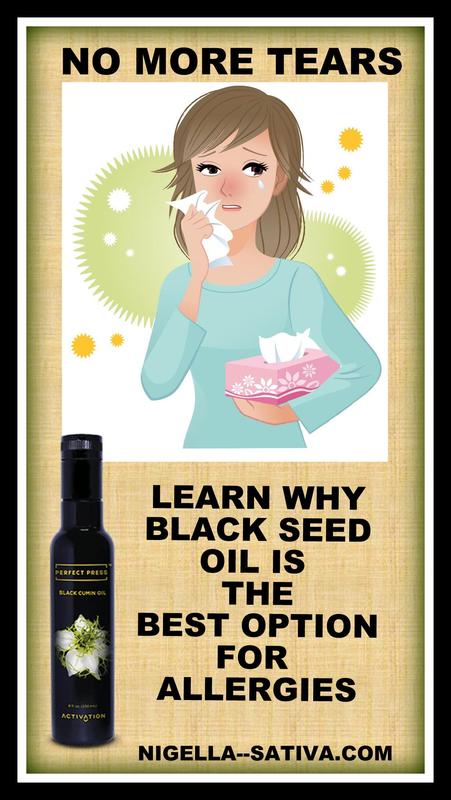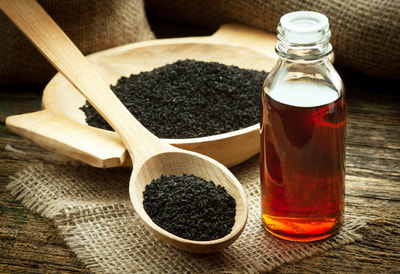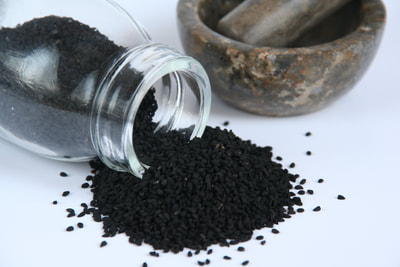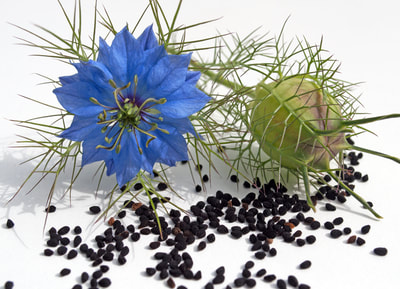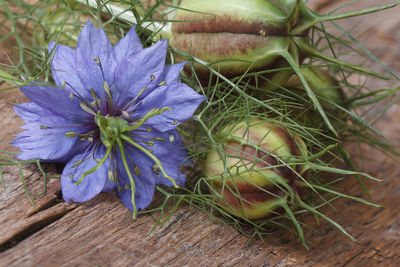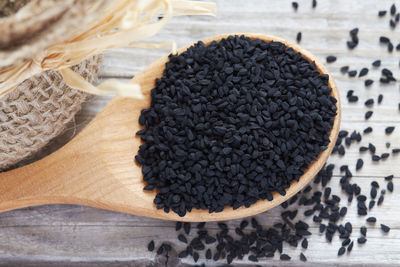- HOME - START HERE
- CONSULTATION SERVICES
- 911 EMERGENCY
- EBOOKS
- Store
- DOSAGES
- HOW TO TAKE
- ANTI-AGING
- CBD AND NIGELLA SATIVA
- RESEARCH SHOWS THAT CANCER RATES WILL RISE DRASTICALLY OVER THE COMING YEARS
- FIBRO CATEGORY
- HERPES CATEGORY
- HIV- Category
- Honey - Category
- Pets
- Top 20 Reasons to use Black Cumin Oil and Capsules
- STROKES CATEGORY
- WEIGHT LOSS CATEGORY
- ANSWER THE QUESTIONS
- Articles
- BLACK SEED OIL IS BETTER THAN TYLENOL FOR ARTHRITIS RELIEF
- Migraines - Headaches - 12 Remedies with Pictures
- My Protocol for Dementia Recovery
- PCOS and Nigella Sativa
- PRIVACY POLICY - GDPR COMPLIANT
- My Team
- About
- Healthy Articles
- Nigella Sativa Online Courses - Part 1
- Childhood Epilepsy
- Natural Diuretics
- Healing Effect on Sarcoidosis
- Nigella Sativa Respiratory Illness
- Cardiovascular Disease
- Depression and COVID19
- 12
- How to Use Nigella Sativa
- How Contagious is Leprosy
- Supporting Human Health - The Immunomodulator
- Nigella Sativa Cancer Ebook
- OK, I am a Muslim - Now What?
- Everything You Ever Wanted to Know About Black Seeds
- Islam Cancer Ebook
- DONATION
- Nigella sativa is an safe alternative Non-Hodgkin’s treatment option
- RESEARCH ON WHY YOU SHOULD HEAT NIGELLA SATIVA SEEDS
- Black Seed Cuisine Ebook
- IS THERE A CURE FOR LUPUS - NATURAL SOLUTIONS
- Black Seed Oil
- TURMERIC DETOX AND MORE
- MASTERS OF HEALING
- PAYMENT RECEIVED
- Non-clickable Page
- IRRITABLE BOWEL SYNDROME - NATURAL SOLUTIONS
- MY CANCER COLLECTION
- CONTACT
WHY IS BLACK CUMIN SEED OIL
A BETTER OPTION FOR ALLERGIES?
THIS ARTICLE IS COPYRIGHTED FOR NIGELLASATIVACENTER.COM. ALL RIGHTS RESERVED. THIS ARTICLE CONTAINS AFFILIATE LINKS I RECOMMEND. PLEASE SEE OUR DISCLOSURE POLICY.
|
The hypersensitivity reaction of the immune system is the onset of allergy. Usually, the immune system gets activated due to any microbial attack, i.e. invasion of a foreign body.
However, some of us are very much sensitive to the exposure of certain elements such as dust mites, molds, pollen, insect stings, food and certain medicines. This acts as a false alarm which triggers immune system and activates mast cells. This further releases histamine and causes hypersensitivity reactions. In most of the cases, the outcome of the hypersensitivity reaction instigates inflammatory condition. Both, genetic and environmental factors play a crucial role to start allergies. [1] The currently available therapeutic management to control allergies include anti-histaminic medications and anti-inflammatory drugs. [2] The huge burden of side effects associated with synthetic drugs for chronic conditions, impels the health conscious people to choose medicines originated from natural sources which have negligible side effects. Black seed oil is one of the evidence-based search results, which can efficiently manage allergic reactions with negligible adverse events. |
Why is black seed oil better option to treat allergies?
The most common anti-allergic medications are categorized as antihistamines, corticosteroids, and mast cell stabilizers.
• Antihistamines block histamine release and stop an allergic reaction, but synthetic medications those fall under antihistamines often causes drowsiness and fatigue.
• Corticosteroids act as an anti-inflammatory agent in allergic reaction; but long-term systemic administration often causes osteoporosis, stomach ulcers, muscle weakness, cataracts, increased blood glucose level and growth retardation in children. The oral administration often increases the risk of hypertension-related complications. In some cases, even the local application causes skin irritation.
• Mast cell stabilizers stabilize mast cells and prevent hypersensitivity reaction of the immune system. This category drugs provide delayed action. [2]
Therefore, it is well established that application of synthetic anti-allergic drugs has several undesirable side effects.
There are several research studies that showed that the black seed oil has potent anti-histaminic and anti-inflammatory effects, which can successfully treat allergic reactions in different body organs. [3,4] It has been also found from scientific research evidence that treating the allergic condition with black seed reduces mast cell number and decreases the concentration of the different inflammatory mediators in blood plasma. [5] All these research evidence sufficiently supported the reason for replacing anti-allergic synthetic medication with black seed oil for the chronic allergic condition.
The most common anti-allergic medications are categorized as antihistamines, corticosteroids, and mast cell stabilizers.
• Antihistamines block histamine release and stop an allergic reaction, but synthetic medications those fall under antihistamines often causes drowsiness and fatigue.
• Corticosteroids act as an anti-inflammatory agent in allergic reaction; but long-term systemic administration often causes osteoporosis, stomach ulcers, muscle weakness, cataracts, increased blood glucose level and growth retardation in children. The oral administration often increases the risk of hypertension-related complications. In some cases, even the local application causes skin irritation.
• Mast cell stabilizers stabilize mast cells and prevent hypersensitivity reaction of the immune system. This category drugs provide delayed action. [2]
Therefore, it is well established that application of synthetic anti-allergic drugs has several undesirable side effects.
There are several research studies that showed that the black seed oil has potent anti-histaminic and anti-inflammatory effects, which can successfully treat allergic reactions in different body organs. [3,4] It has been also found from scientific research evidence that treating the allergic condition with black seed reduces mast cell number and decreases the concentration of the different inflammatory mediators in blood plasma. [5] All these research evidence sufficiently supported the reason for replacing anti-allergic synthetic medication with black seed oil for the chronic allergic condition.
Benefits of Black seed oil in different allergic conditions
The most common allergic reactions include bronchial-constriction which causes asthmatic symptoms, skin rashes, allergic diarrhea and gastric mucosal damage. Black seed and its active phytochemicals can potentially control all these allergic reactions.
Controlling allergen-induced respiratory symptoms with black seed oil treatment
• Excessive histamine release negatively affects the respiratory system and induces broncho-constriction. The usual symptoms of broncho-constriction are quite similar to asthma, which include shortness of breathing, wheezing, uncontrolled coughing, chest congestion etc. Black seed oil antagonizes the histamine-induced broncho-constriction and acts as a bronchodilator. [3] In addition, black seed oil can reduce the histamine-induced increased eosinophils concentration, Th2 cytokines and IgE and IgG1 antibodies in the lungs. Asthma encouraged by an allergic reaction in the respiratory tract can, therefore, be controlled through treatment by black seed oil. [6]
• Black seed oil treatment can also control allergic rhinitis symptoms like sneezing, burning sensation in the nose, watery nose and eyes, red eyes and general malaise. [7]
Treating food allergy with black seed oil treatment
• Allergic diarrhea and gastric mucosal damage are the usual outcomes of food allergy. Almost 2.4% to 4% worldwide general population are often affected with food allergy and the incidence is more common in children. Oral allergy syndrome, vomiting, and diarrhea are the most common symptoms of food allergy, whereas, alcohol consumption often causes gastric mucosal damage. Food allergen often activates and increase the concentration of mast cells present in the small intestine and that trigger allergic reactions. But, black seed oil treatment can decrease the severity of food allergy symptoms and reduce allergic diarrhea by decreasing the number of intestinal mucosal mast cells and inhibiting the level of plasma mast cell protease-1. Therefore, black seed oil treatment can effectively alleviate intestinal allergy symptoms. [5]
• Gastric damage occurs by the increase in a number of mast cells in the intestine. The alcohol consumption often induces an increase in the level of mast cells concentration as it increases histamine levels and myeloperoxidase activities. But strong antioxidant, antiperoxidative effect, and antihistaminic effects of black seed oil can able to reverse the condition and provide gastro-protective effects. [4]
The most common allergic reactions include bronchial-constriction which causes asthmatic symptoms, skin rashes, allergic diarrhea and gastric mucosal damage. Black seed and its active phytochemicals can potentially control all these allergic reactions.
Controlling allergen-induced respiratory symptoms with black seed oil treatment
• Excessive histamine release negatively affects the respiratory system and induces broncho-constriction. The usual symptoms of broncho-constriction are quite similar to asthma, which include shortness of breathing, wheezing, uncontrolled coughing, chest congestion etc. Black seed oil antagonizes the histamine-induced broncho-constriction and acts as a bronchodilator. [3] In addition, black seed oil can reduce the histamine-induced increased eosinophils concentration, Th2 cytokines and IgE and IgG1 antibodies in the lungs. Asthma encouraged by an allergic reaction in the respiratory tract can, therefore, be controlled through treatment by black seed oil. [6]
• Black seed oil treatment can also control allergic rhinitis symptoms like sneezing, burning sensation in the nose, watery nose and eyes, red eyes and general malaise. [7]
Treating food allergy with black seed oil treatment
• Allergic diarrhea and gastric mucosal damage are the usual outcomes of food allergy. Almost 2.4% to 4% worldwide general population are often affected with food allergy and the incidence is more common in children. Oral allergy syndrome, vomiting, and diarrhea are the most common symptoms of food allergy, whereas, alcohol consumption often causes gastric mucosal damage. Food allergen often activates and increase the concentration of mast cells present in the small intestine and that trigger allergic reactions. But, black seed oil treatment can decrease the severity of food allergy symptoms and reduce allergic diarrhea by decreasing the number of intestinal mucosal mast cells and inhibiting the level of plasma mast cell protease-1. Therefore, black seed oil treatment can effectively alleviate intestinal allergy symptoms. [5]
• Gastric damage occurs by the increase in a number of mast cells in the intestine. The alcohol consumption often induces an increase in the level of mast cells concentration as it increases histamine levels and myeloperoxidase activities. But strong antioxidant, antiperoxidative effect, and antihistaminic effects of black seed oil can able to reverse the condition and provide gastro-protective effects. [4]
Skin allergy treatment with black seed oil
• Food allergy or other allergens also causes skin rashes by inducing atopic eczema. [5] Black seed oil is equally effective like other conventional steroidal medications, including Betamethasone in treating eczema. [6]
• Excessive histamine release often causes prostaglandin D2 synthesis and also induces secretion of different inflammatory mediators like Leukotriene, bradykinin, C4, D4, and substance P, which causes chronic urticaria. The antihistaminic effect, the inhibitory effect of prostaglandins synthesis, and the anti-inflammatory mediator release of black seed oil are effective to control urticaria. [8]
All these above-mentioned benefits are well researched through preclinical and clinical trials. Therefore, there is sufficient evidential data backup, which promotes black seed oil treatment efficacy against allergic reactions.
• Food allergy or other allergens also causes skin rashes by inducing atopic eczema. [5] Black seed oil is equally effective like other conventional steroidal medications, including Betamethasone in treating eczema. [6]
• Excessive histamine release often causes prostaglandin D2 synthesis and also induces secretion of different inflammatory mediators like Leukotriene, bradykinin, C4, D4, and substance P, which causes chronic urticaria. The antihistaminic effect, the inhibitory effect of prostaglandins synthesis, and the anti-inflammatory mediator release of black seed oil are effective to control urticaria. [8]
All these above-mentioned benefits are well researched through preclinical and clinical trials. Therefore, there is sufficient evidential data backup, which promotes black seed oil treatment efficacy against allergic reactions.
Direction of application
The general individuals suffering from any type of allergic reactions like allergic rhinitis, bronchial asthma, and atopic eczema can take 40mg to 80mg black seed oil per kg of their body weight. Therefore, the dose of black seed oil varies from individual to individual depending upon their body weight. [9]
• An individual suffering from asthma-like symptom during pollen season can take one teaspoon of black seed oil twice a day for 2 - 3 weeks before commencement of pollen season. It will boost immunity. In case of an asthma attack, in addition to oral intake, inhale the black seed oil vapor twice a day and gently massage black seed oil on the chest and back for fast relief. This will be also effective in treating allergic rhinitis.
• For uncontrolled coughing, mix half (0.5 ) teaspoon of black seed oil with lemon juice and take daily.
• Allergic diarrhea can be controlled by taking 2 teaspoons of black seed oil along with this blunt diet, like boiled rice and yogurt. This can be continued till the condition is improved.
• Black seed oil mixed with cold milk and honey for treating stomach problem in children.
• Vomiting tendency can be controlled by oral intake of roasted black seeds with molasses.
• Topical application of black seed oil on the skin can alleviate rash and inflammatory conditions.
• The overall immunity can be improved by having half to one teaspoon of black seed oil taken twice or thrice a day for initial 20 days and then continuing therapy with 1 teaspoon per day for three to six months. [10]
The general individuals suffering from any type of allergic reactions like allergic rhinitis, bronchial asthma, and atopic eczema can take 40mg to 80mg black seed oil per kg of their body weight. Therefore, the dose of black seed oil varies from individual to individual depending upon their body weight. [9]
• An individual suffering from asthma-like symptom during pollen season can take one teaspoon of black seed oil twice a day for 2 - 3 weeks before commencement of pollen season. It will boost immunity. In case of an asthma attack, in addition to oral intake, inhale the black seed oil vapor twice a day and gently massage black seed oil on the chest and back for fast relief. This will be also effective in treating allergic rhinitis.
• For uncontrolled coughing, mix half (0.5 ) teaspoon of black seed oil with lemon juice and take daily.
• Allergic diarrhea can be controlled by taking 2 teaspoons of black seed oil along with this blunt diet, like boiled rice and yogurt. This can be continued till the condition is improved.
• Black seed oil mixed with cold milk and honey for treating stomach problem in children.
• Vomiting tendency can be controlled by oral intake of roasted black seeds with molasses.
• Topical application of black seed oil on the skin can alleviate rash and inflammatory conditions.
• The overall immunity can be improved by having half to one teaspoon of black seed oil taken twice or thrice a day for initial 20 days and then continuing therapy with 1 teaspoon per day for three to six months. [10]
Which Black Seed Oil Do I Use?
I highly recommend this oil. I am so positive you will love my favorite oil too.
I highly recommend this oil. I am so positive you will love my favorite oil too.
References
1.Allergy. Retrieve from https://medlineplus.gov/allergy.html
2.Allergy medications: Know your options. Mayo Clinic Staff. Retrieve from https://www.mayoclinic.org/diseases-conditions/allergies/in-depth/allergy-medications/ART-20047403?p=1
3.Kamal El-Din, Hussein El-Tahir, Dana M.Bakeet. The Black Seed Nigella sativa Linnaeus - A Mine for Multi Cures: A Plea for Urgent Clinical Evaluation of its Volatile Oil. Journal of Taibah University Medical Sciences Volume 1, Issue 1, 2006, Pages 1-19. Retrieve from https://www.sciencedirect.com/science/article/pii/S1658361206700038
4.Kanter M, Coskun O, Uysal H. The antioxidative and antihistaminic effect of Nigella sativa and its major constituent, thymoquinone on ethanol-induced gastric mucosal damage. Arch Toxicol. 2006 Apr;80(4):217-24. Retrieve from https://www.ncbi.nlm.nih.gov/pubmed/16240107
5.Swantje C. Duncker, David Philippe, Christine Martin-Paschoud, Mireille Moser, Annick Mercenier, Sophie Nutten. Nigella sativa (Black Cumin) Seed Extract Alleviates Symptoms of Allergic Diarrhea in Mice, Involving Opioid Receptors. PLoS One. 2012; 7(6): e39841. Published online 2012 Jun 29. doi: 10.1371/journal.pone.0039841. Retrieve from https://www.ncbi.nlm.nih.gov/pmc/articles/PMC3387213/
6.Salih H.M.Aljabre, Omar M.Alakloby, Mohammad, A.Randhawa. Dermatological effects of Nigella sativa. Journal of Dermatology & Dermatologic Surgery. Volume 19, Issue 2, July 2015, Pages 92-98. Retrieve from https://www.sciencedirect.com/science/article/pii/S2352241015000286
7.Black Seed Oil; Retrieve from http://oilhealthbenefits.com/black-seed-oil/
8.Ali E. Al-Snafio, Abdul Ghani M. Al-Samarai, Ahmed M. AlSabawi. The therapeutic effect of Nigella setiva seed oil in treatment of chronic urticaria. Tikrit Joumal of Phamtaceuticol Sciences 2005, 1(I):t-6. Retrieve from https://www.iasj.net/iasj?func=fulltext&aId=22581
9.Nigella sativa. Retrieve from https://examine.com/supplements/nigella-sativa/
10. NATURAL BLACK SEED REMEDIES. Retrieve from https://theblessedseed.com/natural-black-seed-remedies/
1.Allergy. Retrieve from https://medlineplus.gov/allergy.html
2.Allergy medications: Know your options. Mayo Clinic Staff. Retrieve from https://www.mayoclinic.org/diseases-conditions/allergies/in-depth/allergy-medications/ART-20047403?p=1
3.Kamal El-Din, Hussein El-Tahir, Dana M.Bakeet. The Black Seed Nigella sativa Linnaeus - A Mine for Multi Cures: A Plea for Urgent Clinical Evaluation of its Volatile Oil. Journal of Taibah University Medical Sciences Volume 1, Issue 1, 2006, Pages 1-19. Retrieve from https://www.sciencedirect.com/science/article/pii/S1658361206700038
4.Kanter M, Coskun O, Uysal H. The antioxidative and antihistaminic effect of Nigella sativa and its major constituent, thymoquinone on ethanol-induced gastric mucosal damage. Arch Toxicol. 2006 Apr;80(4):217-24. Retrieve from https://www.ncbi.nlm.nih.gov/pubmed/16240107
5.Swantje C. Duncker, David Philippe, Christine Martin-Paschoud, Mireille Moser, Annick Mercenier, Sophie Nutten. Nigella sativa (Black Cumin) Seed Extract Alleviates Symptoms of Allergic Diarrhea in Mice, Involving Opioid Receptors. PLoS One. 2012; 7(6): e39841. Published online 2012 Jun 29. doi: 10.1371/journal.pone.0039841. Retrieve from https://www.ncbi.nlm.nih.gov/pmc/articles/PMC3387213/
6.Salih H.M.Aljabre, Omar M.Alakloby, Mohammad, A.Randhawa. Dermatological effects of Nigella sativa. Journal of Dermatology & Dermatologic Surgery. Volume 19, Issue 2, July 2015, Pages 92-98. Retrieve from https://www.sciencedirect.com/science/article/pii/S2352241015000286
7.Black Seed Oil; Retrieve from http://oilhealthbenefits.com/black-seed-oil/
8.Ali E. Al-Snafio, Abdul Ghani M. Al-Samarai, Ahmed M. AlSabawi. The therapeutic effect of Nigella setiva seed oil in treatment of chronic urticaria. Tikrit Joumal of Phamtaceuticol Sciences 2005, 1(I):t-6. Retrieve from https://www.iasj.net/iasj?func=fulltext&aId=22581
9.Nigella sativa. Retrieve from https://examine.com/supplements/nigella-sativa/
10. NATURAL BLACK SEED REMEDIES. Retrieve from https://theblessedseed.com/natural-black-seed-remedies/
ALSO READ MY SUGGESTIONS
|
COME JOIN MY MEMBERSHIP GROUP - DO YOU MISS ME? THE COST IS $9.95 PER MONTH. LEARN THE DEEP SECRETS OF BEING WELL.
PAYMENT LINK HERE |
STORE TESTIMONY CONTACT EBOOKS ABOUT PAGE PRIVATE POLICYAmazon Affiliate Disclosure
https://www.nigellasativacenter.com is a participant in the Amazon Services LLC Associates Program, an affiliate advertising program designed to provide a means for website owners to earn advertising fees by advertising and linking to amazon(.com, .co.uk, .ca etc) and any other website that may be affiliated with Amazon Service LLC Associates Program. “Amazon and the Amazon logo are trademarks of Amazon.com, Inc. or its affiliates.” Please note I am also an affiliate for Mountain Rose Herbs, , Shareasale and More. Please see our full disclosure here: Disclaimer: The information on this page and on this website has not been evaluated by the FDA. We do not diagnose, treat, cure or prevent illness or disease - instead, we try to help people learn how to do so themselves. Anyone who believes they have a serious medical condition or health issue should seek diagnoses from a qualified medical professional before making any decisions on how to best address their health. Furthermore, anyone contemplating using any products or information on this website must accept such use as experimental and voluntary. No claims are made regarding the therapeutic use of the products or information on this website and all products featured or sold on this website must be considered nutritional supplements only. -
Copyright Protected - Nigella Sativa.com - 2022-2025 - All Rights Reserved - Any infringe on our copyright will be prosecuted to the fullest extent of the law.
|
OWNER: SAMANTHA DAVIS
WEBSITE: BASED ON EVIDENCE ADDRESS: PO BOX 437, ZARGA, JORDAN 13110 PHONE: +962-53923471 HOURS: 5PM - 12AM - NY;TIME EMAIL: naturalliving [email protected] CONSULTATION FEES 1 STOP CENTER IS BASED ON ALL MODALITIES OF HEALING, NOT JUST NIGELLA SATIVA |
- HOME - START HERE
- CONSULTATION SERVICES
- 911 EMERGENCY
- EBOOKS
- Store
- DOSAGES
- HOW TO TAKE
- ANTI-AGING
- CBD AND NIGELLA SATIVA
- RESEARCH SHOWS THAT CANCER RATES WILL RISE DRASTICALLY OVER THE COMING YEARS
- FIBRO CATEGORY
- HERPES CATEGORY
- HIV- Category
- Honey - Category
- Pets
- Top 20 Reasons to use Black Cumin Oil and Capsules
- STROKES CATEGORY
- WEIGHT LOSS CATEGORY
- ANSWER THE QUESTIONS
- Articles
- BLACK SEED OIL IS BETTER THAN TYLENOL FOR ARTHRITIS RELIEF
- Migraines - Headaches - 12 Remedies with Pictures
- My Protocol for Dementia Recovery
- PCOS and Nigella Sativa
- PRIVACY POLICY - GDPR COMPLIANT
- My Team
- About
- Healthy Articles
- Nigella Sativa Online Courses - Part 1
- Childhood Epilepsy
- Natural Diuretics
- Healing Effect on Sarcoidosis
- Nigella Sativa Respiratory Illness
- Cardiovascular Disease
- Depression and COVID19
- 12
- How to Use Nigella Sativa
- How Contagious is Leprosy
- Supporting Human Health - The Immunomodulator
- Nigella Sativa Cancer Ebook
- OK, I am a Muslim - Now What?
- Everything You Ever Wanted to Know About Black Seeds
- Islam Cancer Ebook
- DONATION
- Nigella sativa is an safe alternative Non-Hodgkin’s treatment option
- RESEARCH ON WHY YOU SHOULD HEAT NIGELLA SATIVA SEEDS
- Black Seed Cuisine Ebook
- IS THERE A CURE FOR LUPUS - NATURAL SOLUTIONS
- Black Seed Oil
- TURMERIC DETOX AND MORE
- MASTERS OF HEALING
- PAYMENT RECEIVED
- Non-clickable Page
- IRRITABLE BOWEL SYNDROME - NATURAL SOLUTIONS
- MY CANCER COLLECTION
- CONTACT
